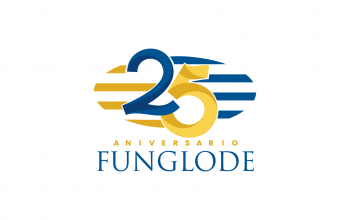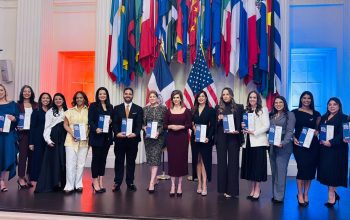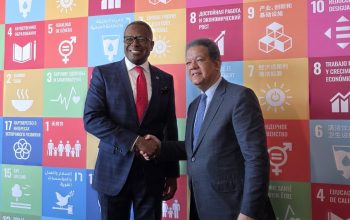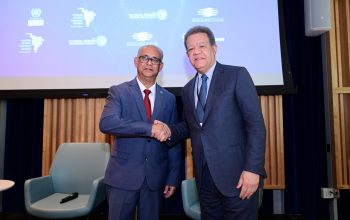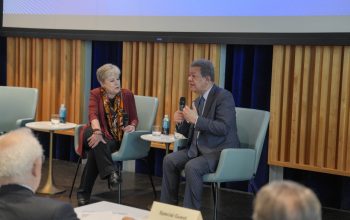news
GFDD Participates in UN General Assembly Interactive Dialogue on Harmony with Nature
April 24, 2017
In commemoration of International Mother Earth Day, GFDD/FUNGLODE participated in the Interactive Dialogue of the 71th Session of the General Assembly on Harmony with Nature on Friday, April 21, at the UN Headquarters. This year, the theme of the dialogue was “The Earth Jurisprudence”, recognizing that the Earth is the source of all laws that govern life. Gathering experts from around the world working in the natural and social sciences, this very
interesting event tackled our human-centered worldview, and invited participants to think about an earth-centered vision defined by a balanced, healthy relationship between human activity and earth.
During the opening segment of the dialogue, a statement was red on behalf of the President of the General Assembly, Peter Thompson. The President of the General Assembly underscored the challenges currently threatening our existence, and the need for a global conscience to
save human kind. He also criticized the idea that Earth resources can be exploited on the only benefits of our species.
Mr. Wu Hongbo, Under-Secretary General for Economic and Social Affairs, delivered a statement on behalf of the
Secretary-General of the United Nations, Antonio Guterres. Mr. Hongbo described the International Mother Earth Day as a tool for meeting the social, economic and environmental needs of the present and future generation. He then, stated that our well-being depends on the well-being of our planet.
H.E. Mr. Fernando Huanacuni, Minister of Foreign Affairs of Bolivia took the floor to give an inspiring statement to his “brothers and sisters”. He urged
everyone to realized that we can’t find a response through our capitalist model, saying that as we address modernity, many have forgotten the concept of share and harmony. He concluded by calling for the adoption of a universal declaration on the Right of Mother Nature.
Following these statements, a panel discussion took place focused on Earth jurisprudence and the Sustainable Development Agenda. This discussion was a great opportunity for all stakeholders, from
Member States to Civil Society, to express their views and questions about this vital relation between the Earth and sustainable development.
Ms. Chandhra Roy-Henriksen, Chief of the Secretariat of the UN Permanent Forum on Indigenous Issues, opened the discussion, by reminding the assembly that 10 years ago, the United Nations adopted a draft declaration about the rights of indigenous people. She mentioned this declaration to highlight the spiritual vision of indigenous
people, leading to a life in harmony with nature. Ms. Liz Hosken, representing The Gaia Foundation, stated that nature is the primary text. Quoting Albert Einstein, she stressed the need for an urgent wake up call, inviting participants to think about our future differently as “we can’t solve a problem with the same thinking that causes the problem”.
Dr. Klauss Bosselmann, Professor of Law, Founding Director of the New Zealand Center for
Environmental Law, and Chair of the IUCN World Commission on Environmental Law Ethics Specialist Group, expressed his convictions over the General Assembly’s ability to articulate action and achieve the SDGs. Dr. Peter G. Browm, Economics for the Anthropocene Project, warned about higher education, currently teaching to future world leaders economic models which are not aligned on the harmony with nature. Linda Sheehan, from Planet Pledge USA then called for long term thinking,
connected with nature considerations.
Mr. Jean-Paul Mertinez, Producer I Studio Director, criticized a “Me, Me, Me” culture which has devastating effects on nature. Encouraging a more earth-centered society, Mr. Mertinez regretted that human work was more valued than the work of nature. Finally, he described new technologies as a new opportunity to “get the humanity together as a species”.
During the Q&A
session, Marc Jourdan, UN Programs & Outreach Manager for GFDD, made an oral statement highlighting the role of eco-tourism in helping to support sustainable development, and thinking human activity in harmony with nature. Jourdan referred to a draft research study carried out by GFDD Fellow Bonnie Raschke which assesses the social, economic and environmental impacts of the whale watching industry in the Dominican Republic. He explained that Raschke’s study
showcases the benefit of establishing marine protected areas, given that they can boost economic development for a region while protecting the local marine ecosystems (Sustainable Development Goal 14), which in this case was a breeding ground for whales. However, Jourdan also noted the ongoing problem within these marine protected areas of sidelining some of the local fishing communities that do not always benefit from the growth of these new industries. Underscoring the
fact that none of the Sustainable Development Goals can be considered in silos, in particular SDG 14 and SDG 8 on decent work for all, he asked the panelists to consider how to reconcile this issue within the eco-tourism industry and to offer recommendations.
Related links:
International Mother Earth Day: http://www.un.org/en/events/motherearthday/


